Researchers have revealed another potential reason to avoid ultraprocessed foods.
Seed oils — which are plant-based cooking oils that are often used in processed, packaged foods — have been linked to an increased risk of colon cancer, according to a new study published this week in the medical journal Gut.
Researchers at University of South Florida (USF) Health and Tampa General Hospital Cancer Institute analyzed 162 tumor samples from colon cancer patients, according to a USF press release.
MEN’S CANCER DEATHS EXPECTED TO SPIKE MORE THAN 90% BY 2050, STUDY FINDS
They found that the tumors contained “an excess number” of molecules that cause inflammation and “a shortage” of healing molecules.

Seed oils — which are plant-based cooking oils that are often used in processed, packaged foods — have been linked to an increased risk of colon cancer, according to a new study. (iStock)
“It is well-known that patients with unhealthy diets have increased inflammation in their bodies,” said study author Dr. Timothy Yeatman, professor of surgery in the USF Health Morsani College of Medicine and associate center director for Translational Research and Innovation at the TGH Cancer Institute, in the release.
“We now see this inflammation in the colon tumors themselves, and cancer is like a chronic wound that won’t heal – if your body is living off of daily ultra-processed foods, its ability to heal that wound decreases due to the inflammation and suppression of the immune system that ultimately allows the cancer to grow.”
“It is well-known that patients with unhealthy diets have increased inflammation in their bodies.”
The findings highlight the potential harms of the Western diet, according to Yeatman. In addition to “inflammatory seed oils,” he also cited culprits like added sugars, saturated fats, ultra-processed foods and chemicals.
“A human’s immune system can be extremely powerful and drastically impact the tumor microenvironment, which is great if harnessed correctly for health and wellness — but not if it’s suppressed by inflammatory lipids from processed foods,” the researcher said.
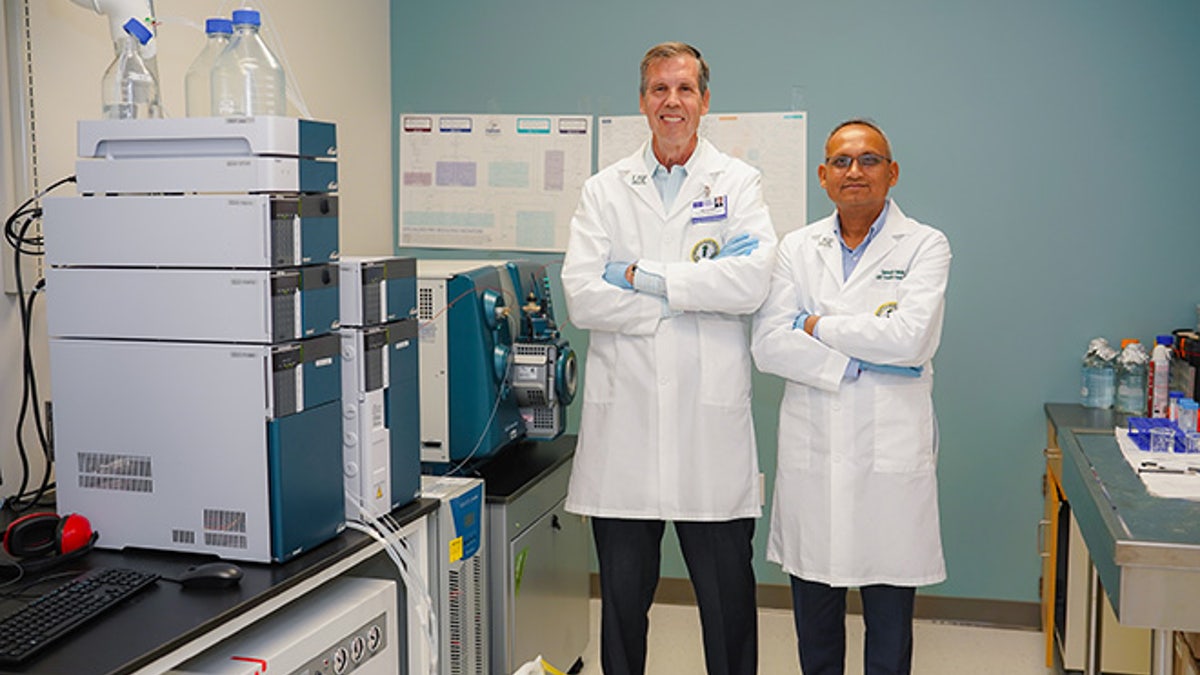
Dr. Timothy Yeatman and Ganesh Halade, co-authors of the study, are pictured in the lab. (Ryan Rossy)
In prior studies, the same research team found that an “imbalanced diet” also increased the risk of heart disease, Alzheimer’s disease and diabetes, the release stated.
Based on these findings, the researchers recommend treating cancer with “resolution medicine,” which would aim to reverse inflammation using healthy, unprocessed foods rich with omega-3 fatty acids and derivatives of fish oil, according to the above source.
ASPIRIN MAY BE LINKED TO LOWER RISK OF COLORECTAL CANCER, NEW STUDY SUGGESTS
Regular exercise and balanced sleep would also play important roles in the resolution medicine approach.
“This has the potential to revolutionize cancer treatment, moving beyond drugs to harness natural healing processes,” Yeatman said.
“It’s a vital step toward addressing chronic inflammation and preventing diseases before they start.”
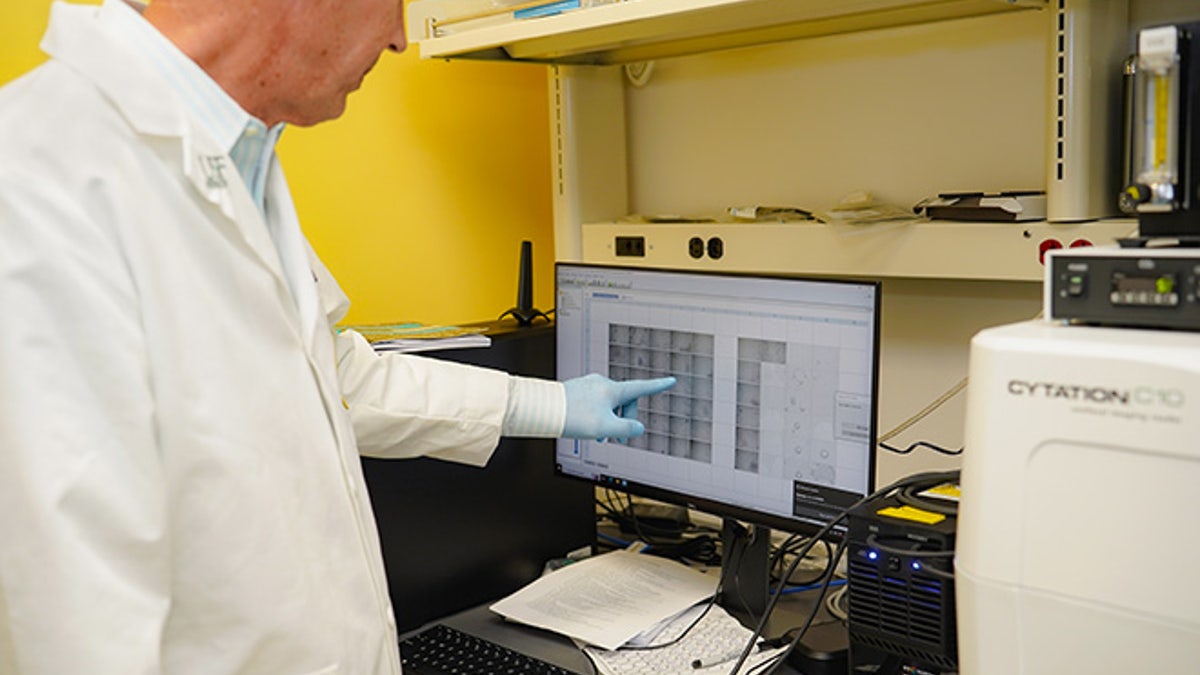
Dr. Yeatman reviews images of the tumors in the lab. (Ryan Rossy)
The new USF study was funded by the National Institutes of Health.
There are currently clinical trials underway at TGH Cancer Institute to study the potential benefits of resolution medicine in treating and preventing disease.
Fox News Digital reached out to the study researchers for comment.
Dietitians weigh in
Sherry Coleman Collins, a food allergy dietician and expert from the Atlanta metropolitan area, said she doesn’t think it’s accurate to suggest that seed oils cause cancer.
THESE ARE THE WORST COOKING OILS FOR YOUR HEALTH, EXPERTS SAY
The expert pointed out that there is an “overwhelming body of scientific literature” that shows the positive health benefits of replacing saturated fats (like lard and butter) with unsaturated fats (like safflower oil).
“This includes a significant reduction in cardiovascular disease, which is the No. 1 killer in America,” she told Fox News Digital.
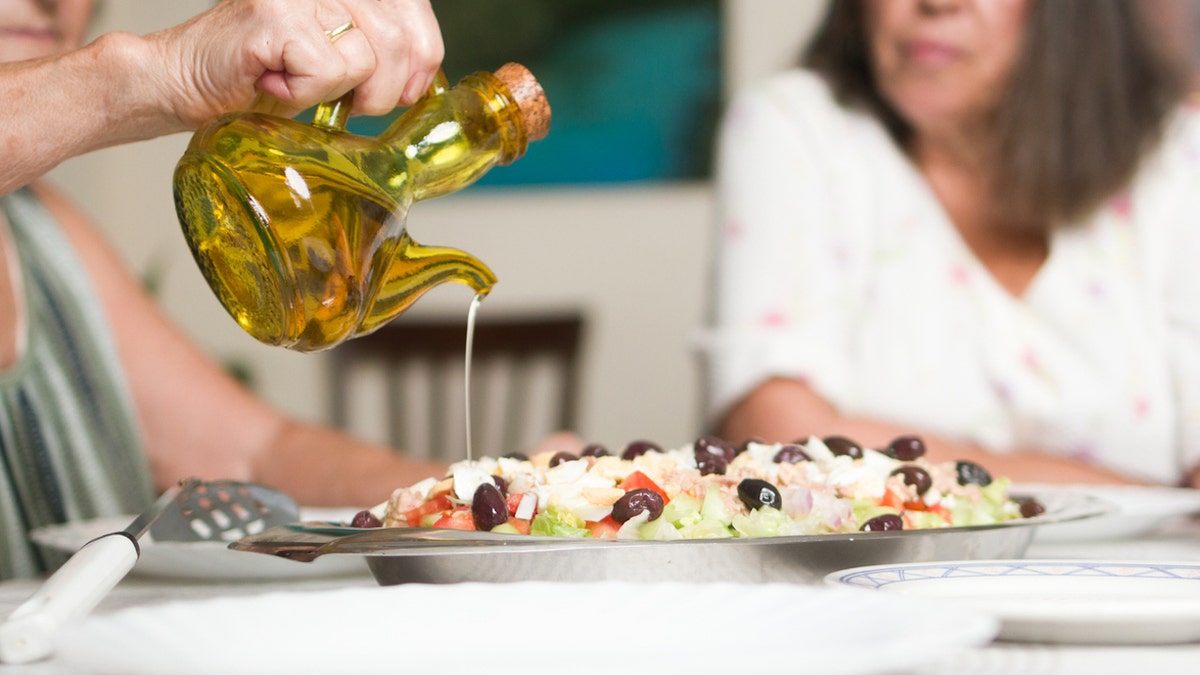
One dietitian recommended using olive oil, noting that there’s a “significant body of evidence” for its use as part of a Mediterranean approach to eating. (iStock)
However, Collins said, “It is something to watch as we continue to better understand why colon cancer has been on the rise, and how diet impacts that increased rate.”
Seed oil isn’t the only problem with ultraprocessed foods, the dietitian pointed out.
CLICK HERE TO GET THE FOX NEWS APP
“They tend to be very high in sodium, fat and sugar,” Collins said. “Lacking fiber and nutrients, but high in calories, they taste delicious, but don’t promote good health.”
To reduce the risk of colon cancer, dementia and many other diseases, Collins recommends cutting out smoking, limiting alcohol, maintaining a healthy weight, exercising regularly, and eating a fiber-rich diet with plenty of fruits, vegetables and whole grains.
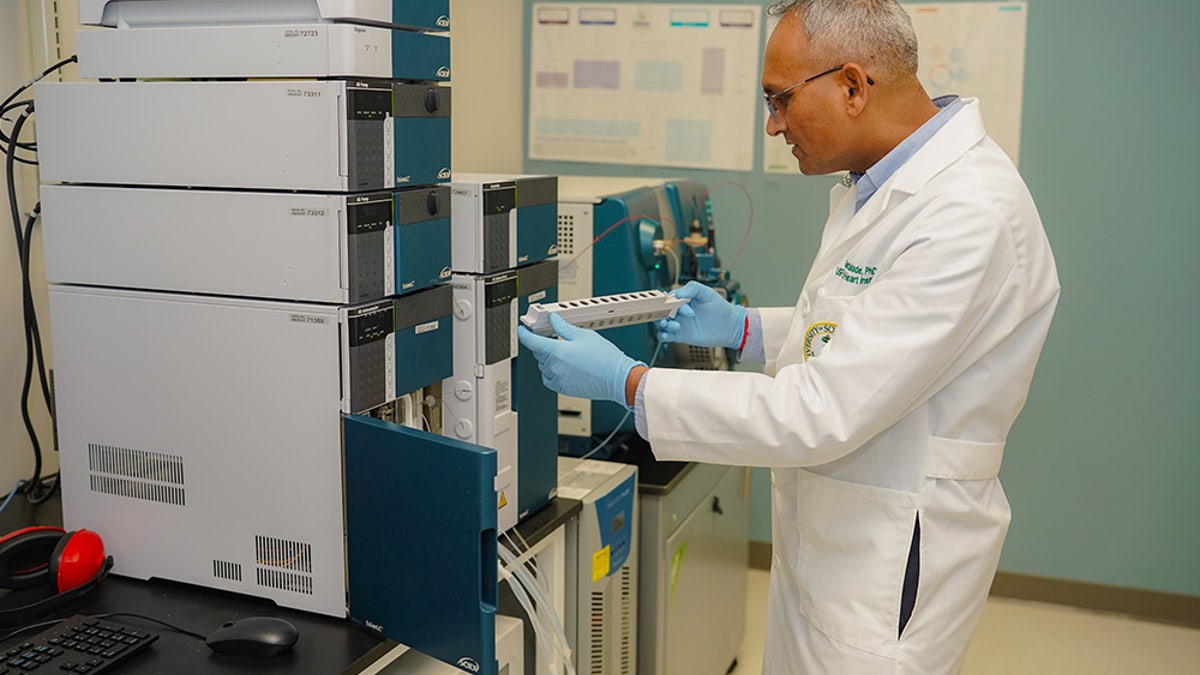
Ganesh Halade is pictured in his lab using a highly sensitive analytical technique to detect trace amounts of lipids in 162 tumor samples from TGH Cancer Institute. (Ryan Rossy)
In terms of cooking oils, Collins recommends using olive oil, noting that there’s a “significant body of evidence” for its use as part of a Mediterranean approach to eating.
“Extra-virgin olive oil can be a wonderful, versatile oil to use in low-medium heat cooking and it tastes great, and has a very good fatty acid profile,” she told Fox News Digital.
CLICK HERE TO SIGN UP FOR OUR HEALTH NEWSLETTER
“For higher-heat cooking, I like avocado and peanut oils for their high smoke point and neutral flavor, and they too have good fatty acid profiles.”
Collins agrees with the researchers’ recommendation to increase the intake of omega-6 fatty acids, as the American diet is “woefully deficient.”
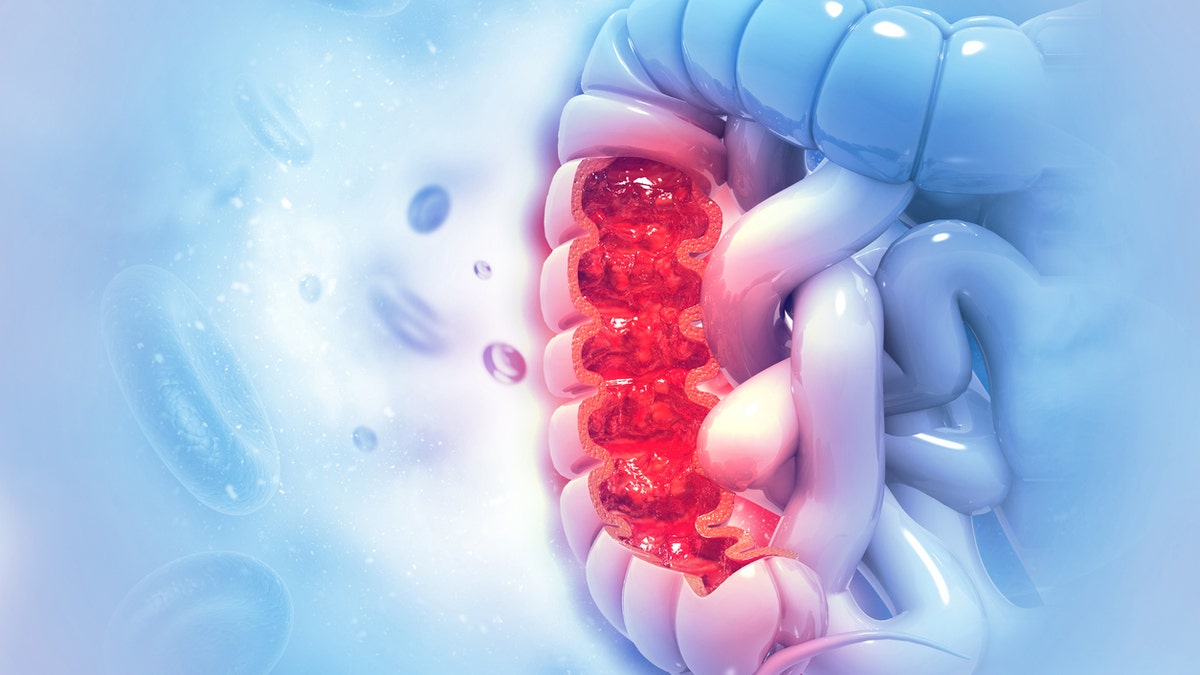
“It is something to watch as we continue to better understand why colon cancer has been on the rise, and how diet impacts that increased rate,” a dietitian said. (iStock)
“Fatty fish, like salmon, is the best source — these can also be found in some nuts and seeds, including walnuts and chia, but they are not as bioavailable or absorbable as those of fish,” she added
Jason Fung, a Canadian nephrologist (kidney specialist), noted that the study is “preliminary and far from definitive.”
“Why take a chance?”
“The hypothesis is that eating too many seed oils means we have too many omega 6 fats, which are pro-inflammatory, and inflammation can be an important contributing factor to cancer,” he said in a statement to Fox News Digital.
“It’s an interesting and plausible hypothesis, but not definitive.”
For more Health articles, visit www.foxnews.com/health
Even so, Fung confirmed that he does not keep any seed oils at home.
“I only use olive oil and butter for my cooking at home. Why take a chance?”
